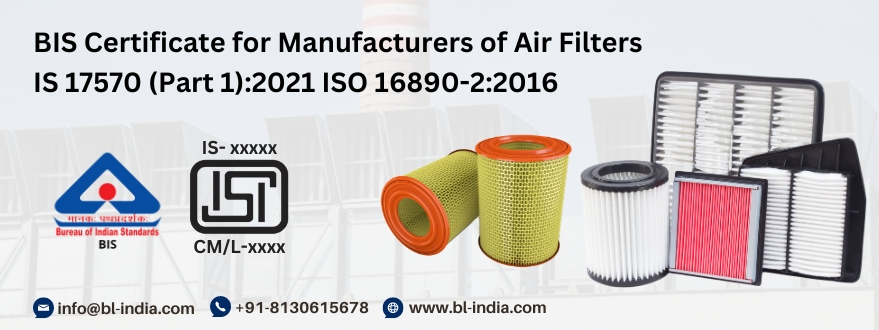
Air filters for general ventilation systems play a critical role in maintaining indoor air quality and ensuring the health and comfort of occupants. These filters serve as the first line of defense against airborne contaminants, including dust, pollen, mould spores, and other particulate matter, which can adversely affect respiratory health and overall well-being.
General ventilation systems are integral to various settings, including residential buildings, commercial establishments, healthcare facilities, and industrial environments, where they facilitate the circulation of fresh air while removing pollutants and odours. Within these systems, air filters act as essential components, trapping harmful particles and preventing them from circulating back into the indoor environment.
The effectiveness of air filters is determined by their technical specifications and classification system, which are based on criteria such as particulate matter efficiency (ePM). Air filters for general ventilation are subject to specific technical standards and requirements outlined in IS 17570 (Part 1):2021 ISO 16890-2:2016 established by the Bureau of Indian Standards (BIS).
These standards provide guidelines for the performance and efficiency of air filters and establish a classification system based on particulate matter efficiency, enabling users to make informed decisions regarding filter selection and application. However, recent developments in the regulatory process have sparked discussions regarding the necessity of BIS Certification for these air filters in India.
The Bureau of Indian Standards is the national standards body of India, operating under the aegis of the Ministry of Consumer Affairs, Food, and Public Distribution. Established in 1986, BIS is responsible for the formulation and implementation of standards across various sectors to ensure the quality, safety, and reliability of products and services.
One of the hallmark programs introduced by BIS is the Indian Standard Institute (ISI) Certification scheme. ISI certification, also known as the ISI mark, is a conformity assessment scheme that signifies compliance with Indian standards set by BIS.
Products bearing the ISI mark undergo rigorous testing and evaluation to ensure that they meet the specified quality and safety requirements. The ISI mark serves as a hallmark of quality and reliability, instilling confidence in consumers regarding the performance and safety of certified products.
It covers a wide range of products, including consumer goods, industrial equipment, electrical appliances, and construction materials, among others. Through the ISI certification scheme, BIS plays a pivotal role in safeguarding consumer interests and promoting quality consciousness in the Indian market.
Yes, the Bureau of Indian Standards has recently mandated BIS certification for air filters used in general ventilation systems under IS 17570 (Part 1):2021 ISO 16890-2:2016 to be legally sold in India. The Department for Promotion of Industry and Internal Trade (DPIIT), under the Ministry of Commerce & Industry, Government of India, has released a draft Quality Control Order as "Air filters (Quality Control) Order, 2023."
This draft proposes to make it obligatory for all air filters intended for general ventilation in India, regardless of whether they are domestically manufactured or imported from abroad, to undergo compulsory BIS certification. These filters would need to display the ISI Mark of the Bureau of Indian Standards, affirming their compliance with prescribed quality standards, and must be accompanied by a valid BIS license.
Obtaining a BIS certificate for air filters offers several benefits, ensuring quality, performance, and reliability for both manufacturers and consumers, such as:
The IS 17570(Part 1):2021 ISO 16890-2:2016 plays a pivotal role for air filters in several ways, such as:
Manufacturers seeking BIS certificate for their products, including air filters for general ventilation, can follow these steps to initiate the certification process:
Step 1: Manufacturers should familiarize themselves with the relevant BIS standards applicable to their product category.
Step 2: Manufacturers can apply for BIS certification and fill out the application form accurately through the BIS online portal.
Step 3: Along with the application form, manufacturers are required to submit supporting documents.
Step 4: BIS may require samples of the product for testing to verify compliance with the relevant standards.
Step 5: BIS conducts inspections of manufacturing facilities to assess compliance with quality management systems and production processes.
Step 6: Manufacturers are required to pay the applicable fees for BIS certification, which vary depending on the product category and the scope of certification.
Step 7: Upon successful completion of testing, documentation review, and factory inspection, BIS will issue the BIS certificate if the product meets all requirements.
To obtain a BIS license for air filters, manufacturers need to submit several documents, including:
The requirement for BIS certification for air filters used in general ventilation systems under IS 17570 (Part 1):2021 ISO 16890-2:2016 in India underscores the importance of ensuring product quality, performance, and safety. As the Bureau of Indian Standards mandates certification for these products, manufacturers must navigate the certification process efficiently to access the Indian market.
At Brand Liaison, we understand the complexities involved in obtaining BIS certification and offer comprehensive assistance and support to manufacturers. Our expertise and streamlined processes enable manufacturers to navigate the certification process seamlessly, ensuring compliance with regulatory requirements and facilitating market access.
By partnering with Brand Liaison, manufacturers can expedite the certification process, minimize delays, and accelerate their products' entry into the Indian market. With our assistance, manufacturers can confidently navigate the regulatory landscape, secure BIS certification for their air filters, and contribute to promoting healthier indoor environments across India.